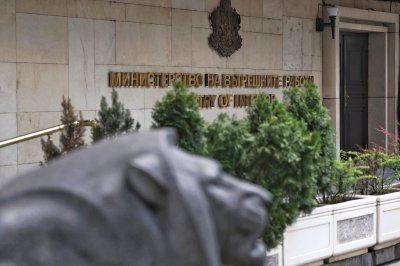The Constitutional Court has annulled the legislative easing introduced two years ago that allowed the construction of photovoltaic (solar) plants on arable land.
The amendments were initially challenged by President Rumen Radev, who argued that they posed a risk of uncontrolled conversion of agricultural land into energy production sites.
Previously, to change the use of agricultural land for the construction of solar plants, approval was required from the Agricultural Land Commission, which had to approve the site and the route. Based on this approval, a detailed development plan was drafted, and the commission's consent was again needed to remove the site from the agricultural land fund.
However, legislative changes in 2023 eliminated this complex procedure. At the time, President Radev warned that these changes endangered Bulgaria’s agricultural resources and referred the matter to the Constitutional Court.
The court's reasoning for overturning the changes now is similar: that the application of relaxed procedures for renewable energy production should not be at the expense of agricultural land, which is a limited resource.
"The application of facilitated procedures to promote the production of renewable energy should not be at the expense of agricultural land, which is a limited and non-renewable resource," the Constitutional Court stated.
"The Court's decision is final, not subject to appeal, and effectively restores the strict regulatory framework that existed prior to 2023, intended to protect agricultural land as required by the Constitution," explained Plamen Abrovski, an agricultural law expert.
The Bulgarian Photovoltaic Association was not surprised by the Court’s ruling and fully supports the judges' reasoning.
"As investors, we believe this is the right decision. Our business — the construction of photovoltaic plants — must contribute to environmental protection and not harm Bulgaria's agricultural land," said Meglena Ruseva, Chair of the Bulgarian Photovoltaic Association.
The association further clarified that even during the period of eased procedures, no solar plants were built on agricultural land as this is prohibited by other Bulgarian laws.
"I do not believe that the Constitutional Court’s decision will halt the investment process in photovoltaic plants. On the contrary, it protects public interest and ensures that new plants will comply with environmental and agricultural legislation," Ruseva added.
According to the Association, Bulgaria currently has over 4,000 megawatts of installed photovoltaic capacity. Relative to the country's total territory, this is a negligible amount, with the facilities built on lands unsuitable for agricultural use.








 Чуй новините
Чуй новините Подкаст
Подкаст























